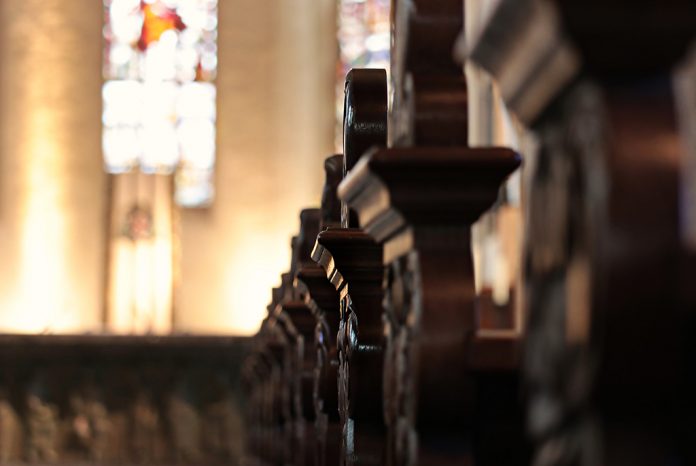SEATTLE (BP) — As pastor of Epic Life Church in Seattle with only five employees, Keith Carpenter sees the Paycheck Protection Plan loan as a godsend during a devastating economic downturn prompted by the COVID-19 pandemic. So does pastor A.B. Vines, whose multisite New Seasons Church in Spring Valley, Calif., employs about 50.
But some pastors have theological and ethical concerns with the loan, which is administered by the U.S. Small Business Administration.
“The purpose behind the loan is to keep people employed,” Carpenter said Tuesday (April 7), just a day after he applied. “I don’t see a problem with doing it at all. It’s being wise stewards of the resources God provides, and if not anything else, you can pass those resources on in some way to others who might be hurting, in the long run.”
At least two pastors, Bart Barber at First Baptist Church in Farmersville, Texas, and Anthony Hicks of Clifton Baptist Church in Franklinton, La., have discouraged their congregations from applying for the loans offered under the Coronavirus Aid, Relief and Economic Security (CARES) Act, which was passed by Congress last month.
“Generally speaking,” Barber wrote in a blog, “if it takes an act of Congress to make it happen, there’s more going on than just a loan from a bank.”
But others, including Southern Baptist ethicists Russell Moore and Larry Lyon, said they do not see ethical compromises in receiving the loans. The Southern Baptist Ethics & Religious Liberty Commission (ERLC), which Moore leads, joined a bipartisan push to clarify that religious liberties of churches would be protected under the loans administered by the Small Business Administration.
The loans are included in the CARES Act, initially funded at $2 trillion and designed to relieve economic hardship caused by the coronavirus pandemic that has killed thousands and stymied the economy. President Donald Trump said Tuesday (April 7) he’ll work to add more money to the Paycheck Protection Program, which was initially funded at $350 billion.
Businesses — as well as churches and other faith-based nonprofits — with fewer than 500 employees are eligible to receive loans covering up to 2.5 times their average monthly payroll, with a cap of $10 million per loan, to cover expenses like payroll, utilities and rent or mortgage payments.
Carpenter said he intends to maintain his five-person staff at Epic Life Church in Seattle, which according to terms of the program would allow the loan to be forgiven.
“We’re confident we’re keeping all of our employees, and because of that it really seems like a very wise thing to do, that the government has given us this opportunity to kind of have some more money for ministry purposes,” Carpenter said. “There’s no strings attached as far as we can see. At this time, we haven’t had to lay off anyone, but we don’t know what the future’s going to hold. The government I believe is rightly seeing 501c3s [nonprofits] as legitimate businesses in the states, and for them to keep people employed I think is a really good thing.”
Vines, an ERLC trustee, had initial concerns about the loan, but he said those have been adequately addressed.
“I read that there were no loopholes or attachments of us to them [the banks],” Vines said. “There’s no binding agreement that you now have a deed to our church or you govern us, there’s nothing like that. And at the end of the day, it was about taking care of my people. We have laid nobody off at any of our locations. … I don’t want to lay God’s people off.”
Many of New Seasons’ members are employed in the service, entertainment and education professions, Vines said, which are heavily impacted by the economic downturn. Loan recipients have until June 30 to ask for forgiveness. Vines will accept the loan as a grant, unless he finds the money is not needed.
“We’ll get the money; if we do fine, we’ll give the money right back,” Vines said. “But I’d rather have a safeguard than no safeguard. If we come out of this thing fine, whatever amount we get, we’ll turn around and give it right back to them.”
Lyon, an ethics professor at New Orleans Baptist Theological Seminary, said the fact that the loans are forgivable makes them more useful to churches.
“If used in the ways that Congress intends, such as maintaining operations and payroll, then the forgiven loan becomes more like a public resource or public good that is provided by the government,” Lyon said. “This could be likened unto the fire department, public roads, and water lines. Churches use these services within their communities and these services are financed principally through taxes.
Source: Baptist Press
All Content & Images are provided by the acknowledged source



